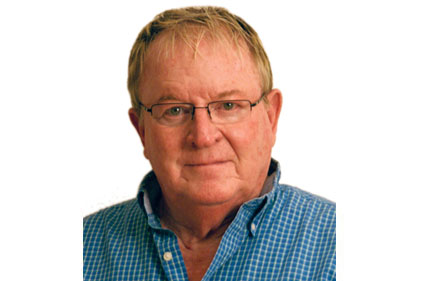Develop demand

Marketing and networking are key topics at 2012 HARDI conference.

Heating, Air-conditioning & Refrigeration Distributors International (HARDI) held its annual conference at the JW Marriott Hotel in Orlando in early October.
This year’s “Develop Demand” conference featured guest speakers, workshops, council forums and a conference booth program. The booth program is basically the same as supplier exhibit booths, but HARDI requires the booth be manned by empowered decision makers with the goal to provide a two-way dialogue between distributor and supplier members. This is the first year suppliers were allowed to display products, though not all did.
HARDI Membership Development & Services Manager Stephanie Lingofelter noted the annual conference helps HARDI with its four main objectives:
Advocacy: Giving supply houses a voice in government;
Education: Developing and providing training programs for members;
Benchmarking: Sharing growth data to determine where solutions are needed; and
Networking: Setting up niche conferences and getting members together to share ideas.
When asked about some of the means the association is proposing to meet the goal of this year’s theme (developing demand, as opposed to simply supplying products), HARDI 2012 President L.B. “Bud” Mingledorff (chairman of Norcross, Ga.-based Mingledorff’s) replied: “One way we are suggesting is to do it by marketing. And by that I don’t mean marketing in the traditional sense, but by using the Internet to target and know customers, and by making products and pricing available to all potential customers on an easily accessed website.”
Mingledorff explained his company recently created such a marketing department in order to expand its customer base. Mingledorff’s recently developed an app for its contractor customers where they can quickly call up a part or piece of equipment online on their mobile phones or readers and get access to retail pricing and instant ordering capabilities.
Mingledorff said the goal he has set for his department is to make the pages much like those on Amazon.com where products are described and suggestions given on other parts and pieces required to complete the job.

Schmidt said working with the utility has greatly increased his sales of heat pumps, and he is making consumers aware of his company’s services and those of his key contractor customers by creating Web pages and interlinking them all so when one page is found, all can be found. And while some may consider providing such information to consumers unfavorable, the net effect is all Web pages move up in the order of say, a Google search, because of the many links. This great idea illustrates some reasons why attending conferences such as this can be so helpful.
Bill Shaw, CEO of Standard Supply in Dallas, spoke of how important being a HARDI member has been to him and his company. He explained his company has grown from one of the smallest in his area to one of the largest over the past 30 years or so. He gives credit to the benefits of networking with other members.
“Back when we started there were 26 companies in our business and we were No. 27,” he said. “There are a lot of smart people in this group who have great ideas and are willing to share them, and it’s many of these ideas that we took home to grow our company so successfully.”

Mingledorff’s (219 techs certified) and Johnstone Supply (138 techs certified) are two supply houses doing exceptionally well in tech certification and both received awards in recognition of those certification numbers.

In one of the committee forums on the Monday conference program, the subject of benchmarking was raised. It seems many HARDI members are still reluctant to input their company data online and some are even unaware of how to determine the strengths of their companies in their markets. It was pointed out one of the advantages of being part of the association is knowing how well your market is doing, how well your company is doing and which way your company needs to grow.
However, despite the upward trends and the fact the Dow Jones Average is up 7.1% for the year, a recent Gallop poll shows 60% of respondents believe things are getting worse.
“Maybe we are happier in our pessimism,” Beaulieu concluded. “Such a conundrum will take more than an economist to solve.”

HARDI’s 2012
annual conference was held at the JW Marriott Hotel in Orlando and featured a
new conference booth program that encouraged a two-way dialogue between
distributor and supplier members.
Heating, Air-conditioning & Refrigeration Distributors International (HARDI) held its annual conference at the JW Marriott Hotel in Orlando in early October.
This year’s “Develop Demand” conference featured guest speakers, workshops, council forums and a conference booth program. The booth program is basically the same as supplier exhibit booths, but HARDI requires the booth be manned by empowered decision makers with the goal to provide a two-way dialogue between distributor and supplier members. This is the first year suppliers were allowed to display products, though not all did.
HARDI Membership Development & Services Manager Stephanie Lingofelter noted the annual conference helps HARDI with its four main objectives:
Advocacy: Giving supply houses a voice in government;
Education: Developing and providing training programs for members;
Benchmarking: Sharing growth data to determine where solutions are needed; and
Networking: Setting up niche conferences and getting members together to share ideas.
When asked about some of the means the association is proposing to meet the goal of this year’s theme (developing demand, as opposed to simply supplying products), HARDI 2012 President L.B. “Bud” Mingledorff (chairman of Norcross, Ga.-based Mingledorff’s) replied: “One way we are suggesting is to do it by marketing. And by that I don’t mean marketing in the traditional sense, but by using the Internet to target and know customers, and by making products and pricing available to all potential customers on an easily accessed website.”
Mingledorff explained his company recently created such a marketing department in order to expand its customer base. Mingledorff’s recently developed an app for its contractor customers where they can quickly call up a part or piece of equipment online on their mobile phones or readers and get access to retail pricing and instant ordering capabilities.
Mingledorff said the goal he has set for his department is to make the pages much like those on Amazon.com where products are described and suggestions given on other parts and pieces required to complete the job.

HARDI’s 2012 annual conference highlighted the
association’s key points.
Embracing the Internet
Times have changed and the Internet now plays a far more important role in our businesses. This was pointed out by Jeff Schmidt (of Milwaukie, Ore.-based Mar-Hy) when explaining how his company is “developing demand.” He noted part of Mar-Hy’s success is based on working with targeted customers and with its local co-op electrical company along with having a presence on the Internet.Schmidt said working with the utility has greatly increased his sales of heat pumps, and he is making consumers aware of his company’s services and those of his key contractor customers by creating Web pages and interlinking them all so when one page is found, all can be found. And while some may consider providing such information to consumers unfavorable, the net effect is all Web pages move up in the order of say, a Google search, because of the many links. This great idea illustrates some reasons why attending conferences such as this can be so helpful.
Bill Shaw, CEO of Standard Supply in Dallas, spoke of how important being a HARDI member has been to him and his company. He explained his company has grown from one of the smallest in his area to one of the largest over the past 30 years or so. He gives credit to the benefits of networking with other members.
“Back when we started there were 26 companies in our business and we were No. 27,” he said. “There are a lot of smart people in this group who have great ideas and are willing to share them, and it’s many of these ideas that we took home to grow our company so successfully.”

Fortune
magazine writer Nina Easton speaks to the Monday luncheon crowd at HARDI’s 2012
annual conference in Orlando.
Getting to know your customers
Sam Richter, the conference’s Sunday luncheon speaker, gave an eye-opening (and somewhat frightening) demonstration of what you can learn about your customers and potential customers from the Internet in his talk, “Know Your Customers: Keys to Demand Creation.” Before the assembled group he was able to call up information about Mingledorff’s home and even a photo ID of him. The point? The more you know about your customers, the more you understand their needs and can create demand.Education
HARDI is constantly coming up with new tools and training courses for territory managers and the like. It also works closely with service-training organizations such as NATE. In the process, supply houses are not only creating a better relationship with their customers, but are improving consumer views of their products while reducing warranty failures by getting service techs certified.Mingledorff’s (219 techs certified) and Johnstone Supply (138 techs certified) are two supply houses doing exceptionally well in tech certification and both received awards in recognition of those certification numbers.

HARDI 2012
President Bud Mingledorff stresses one way to
develop demand is through the use of marketing programs.
Advocacy and benchmarking
In addition to lobbying Congress on behalf of its members, HARDI has programs in place to fly members to Washington, D.C., to meet with federal representatives and discuss problems wholesalers are encountering with legislation. HARDI has one of those fly-ins slated for May 23, 2013.In one of the committee forums on the Monday conference program, the subject of benchmarking was raised. It seems many HARDI members are still reluctant to input their company data online and some are even unaware of how to determine the strengths of their companies in their markets. It was pointed out one of the advantages of being part of the association is knowing how well your market is doing, how well your company is doing and which way your company needs to grow.
How well is the market doing?
And finally, Trend Research Senior Economist Alan Beaulieu pointed out he is seeing an important ongoing expansion in the U.S. economy. He said consumers in general are doing a great job in handling their debts. For example, the national delinquency rate on auto loans has dropped to the lowest it has been since such things started being tracked in 1999, and the delinquency rate on credit cards is the lowest over its 21-year history.However, despite the upward trends and the fact the Dow Jones Average is up 7.1% for the year, a recent Gallop poll shows 60% of respondents believe things are getting worse.
“Maybe we are happier in our pessimism,” Beaulieu concluded. “Such a conundrum will take more than an economist to solve.”
Links
Looking for a reprint of this article?
From high-res PDFs to custom plaques, order your copy today!





